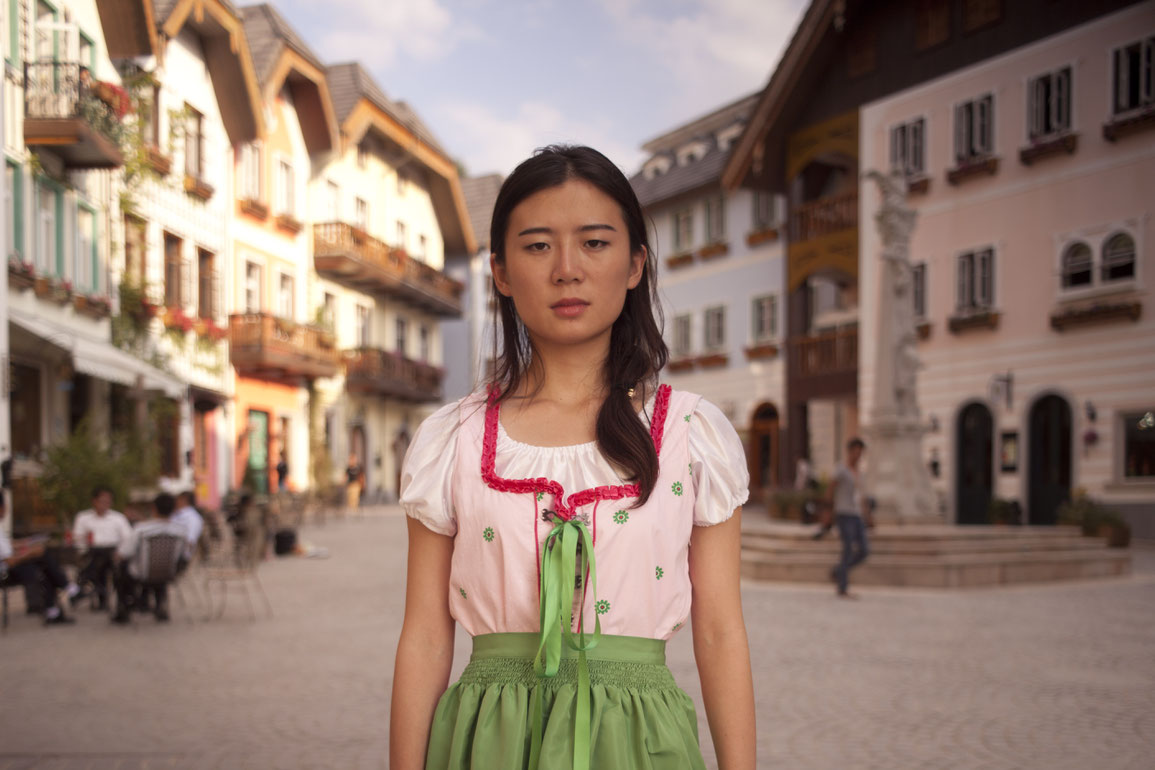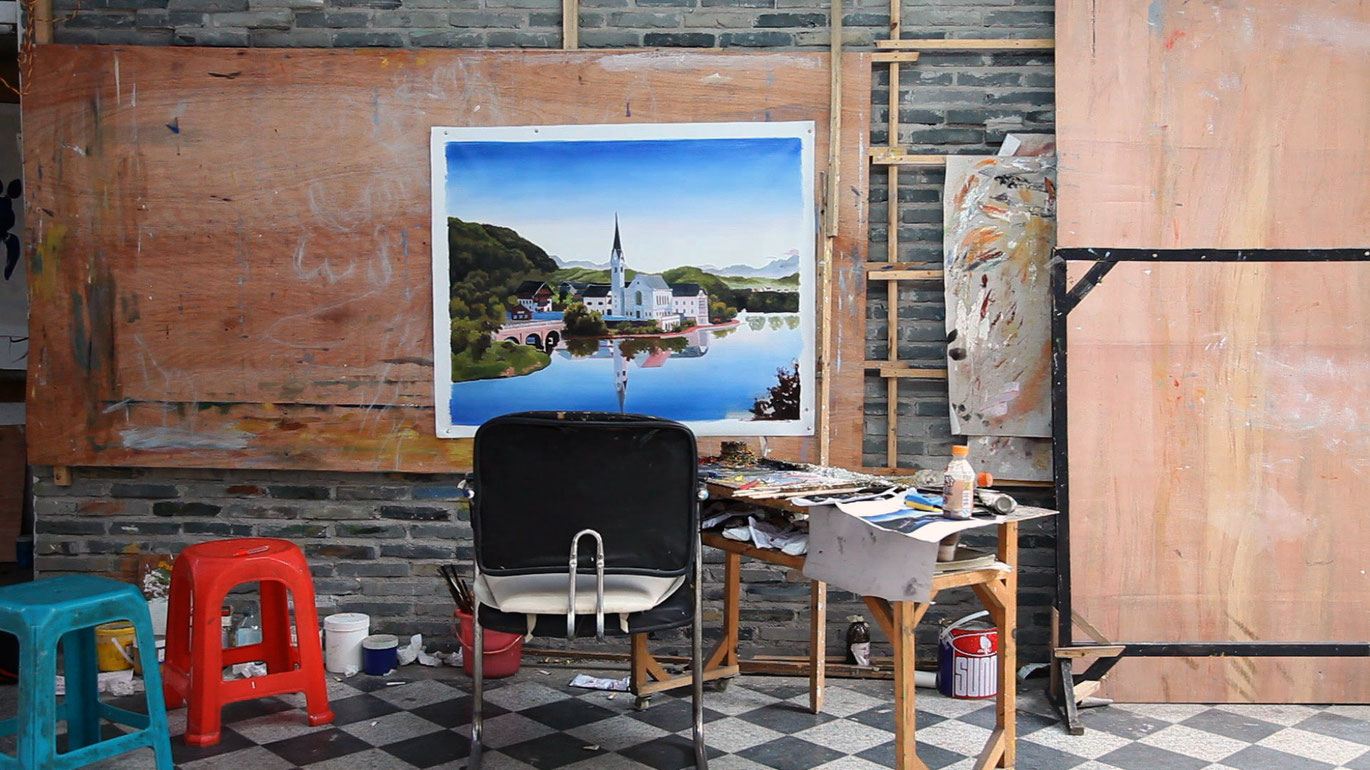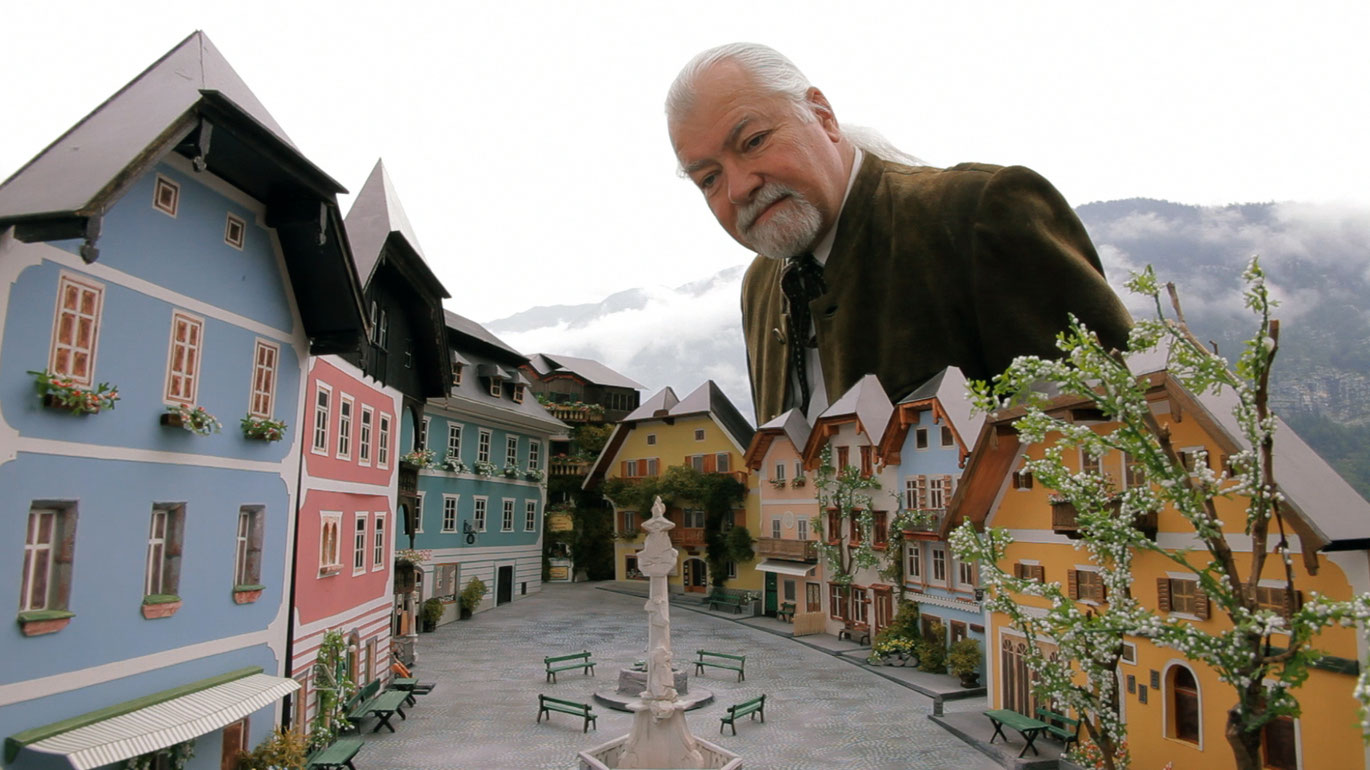Double Happiness
Among the Chinese double happiness refers to the happiness that´s increased twofold when a couple decides to spend the rest of their lives together. Ella Raidel chose this beautiful and optimistic concept as the title of her first full-length documentary. But, calling it a documentary possibly isn´t fitting, and it´s certainly not like the conventional kind of report on globalization. On the contrary, this is an extremely pointed film essay made with a great deal of sensitivity and a fine touch.
Starting with the widely known but rather banal fact that "the Chinese" near the Special Economic Zone of Shenzhen have more or less rebuilt to scale the Upper-Austrian tourist attraction of Hallstatt, or at least parts of it, Raidel takes an extremely precise look at contemporary China which shows she´s completely unimpressed by the opposites characterizing the West´s current view of the country. This view leaves little latitude between breathless admiration for the economic powerhouse and trite criticism of the "political conditions." Thanks to a few intelligent observations and with the aid of an excellent selection of interviewees, most of them from the fields of architecture and urban planning, the result is a panorama of a country at a delicate point in time in its political, social and economic development.
Like every good film, this one poses more important questions than it answers—such as concerning the relationship between tradition, the modern age and the future; between the reality and late-capitalist dreams; and between essential progress and environmental protection. Double happiness would also be produced by a "wedding" of these aspects, some of which seem almost irreconcilable. (Andreas Ungerböck)
Translation: Steve Wilder
go to website & DVD purchase: Double Happiness
Indiewire: 8 Great Documentary Discoveries from Hot Docs 2015 (Critique)
"Double Happiness"
Another fascinating and surreal examination of China´s hyper-capitalistic rush into the extreme reaches of postmodernity, this highly composed documentary looks at the replication of a scenic Austrian town named Hallstatt — cobblestone by cobblestone — in an undeveloped track of land in China. With a wry point of view and a playful blending of filmmaking modes, where it´s difficult to distinguish between real and imagined, the film raises thought-provoking questions about the nature of authenticity, creativity, and happiness.
see entire article:
http://www.indiewire.com/article/8-great-documentary-discoveries-from-hot-docs-2015-20150504
Original und Kopie im Film vereint, von Nora Bruckmüller, OÖN, 25.04.2014 (Article)
Nachdem der kecke Schachzug 2011 öffentlich wurde, hinterließ er in Oberösterreich zuerst einen Sturm der Entrüstung, gefolgt von einer Heerschar Journalisten aus aller Welt, die über die inzwischen fertig gebaute Kopie berichteten.
Inzwischen ist die vermeintliche Plage zum Glücksfall geworden – für beide Regionen. Filmemacherin Ella Raidel aus Gmunden eröffnet das heute startende "Crossing Europe Filmfest" in Linz mit einem Werk, das auf respektvolle Weise der Verbindung und dem Austausch zwischen dem Original im Salzkammergut und der asiatischen Kopie nachspürt. "Ich wollte in ´Double Happiness´ jener Sehnsucht nachgehen, die überhaupt dazu führt, eine solche Stadt in China nachzubauen", erklärt Raidel im OÖN-Gespräch.
Nach drei Jahren harter Arbeit denkt die Absolventin der Linzer Kunstuni (Meisterklasse Metall), dass mit dem Projekt in Asien der Wunsch nach einem Eintauchen in eine verehrte, aber auch fremde Kultur gestillt werden kann. "Die Frauen ziehen sich etwa ein Dirndl an, stellen sich vor eine Kulisse und können für einen Tag lang Österreicherinnen sein." Für Raidel, die über experimentelle Video-Arbeiten zum Langfilm gefunden hat, hat das echte Hallstatt immens von der internationalen Aufmerksamkeit im Zuge des Nachbaus profitiert.
Der Titel ihres Films, "Double Happiness", auf Deutsch: doppeltes Glück, reflektiert den gegenseitigen Nutzen. "In China steht doppeltes Glück für die Hochzeit. Es wird stärker, weil man es teilt."
Die "Vermählung der Kulturen" hat Raidel, die seit mehr als zehn Jahren auch in Taiwan lebt, in dokumentarischem Stil eingefangen. Dabei spielt sie sehr gewitzt mit den Fragen, die Original und Nachbau ständig begleiten: Was ist echt? Was ist falsch? Hört man im Film etwa ein Blasmusik Quartett" spielen, während die Kamera über den Marktplatz gleitet, muss man genau hinschauen, um zu erkennen, dass es sich doch nicht um das echte Hallstatt handelt, sondern um ein Modell von Bühnenbildner Siegwulf Turek. Raidel macht es einem damit herrlich einfach, über die Ernsthaftigkeit zu schmunzeln, mit der man Traditionen und Heimat auf einen Sockel stellt.
Crossing Europe: Nächstes "Double Happiness"-Screening: Di., 29. 4., 18 Uhr; mehr zum Filmfest heute im "was ist los?" (S. 13), Infos: www.crossingeurope.at
Double Happiness
2014
Austria, China
74 min



